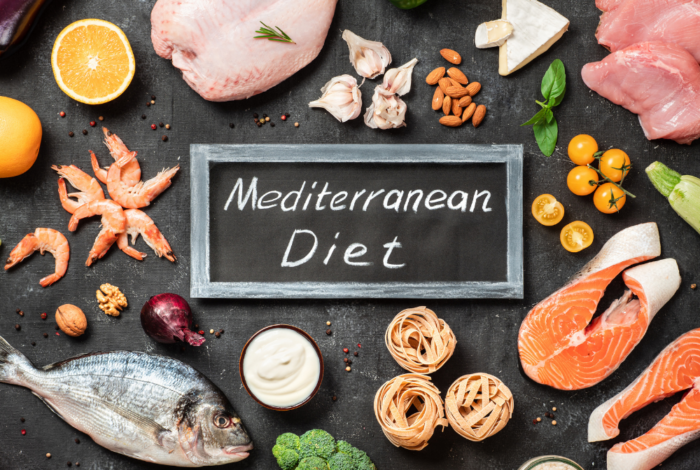Consumption of foods high in sugar, fat and salt has been associated with many negative impacts on our health. Although these foods may be convenient and appealing, they pose significant health risks, especially when consumed regularly.
In the Mediterranean diet, the consumption of foods high in sugar, fat, and salt must be limited. The traditional Greek Mediterranean diet is based on natural (minimally processed) and nutritious foods, such as fruits, vegetables, legumes, whole grains, fish, nuts and olive oil.
Typical examples of such foods are fast food, ready-made meals and frozen meals, such as pizza and French fries.
This category also includes sweet and savoury packaged snacks, such as cakes, biscuits, croissants, mass-produced packaged bread, crackers, potato chips, processed meats (cured meats), as well as soft drinks and juice cartons.
These are usually ultra-processed foods (and beverages) that lack the nutritional value of the fresh and natural foods on which the Greek Mediterranean diet is based.
More and more studies show that consuming ultra-processed foods is associated with an increased risk of developing chronic diseases, such as obesity, type 2 diabetes, and cardiovascular diseases. Consumption of such foods also adversely affects mental health, as it has been associated with an increased risk of mental disorders, such as increased stress and depression.[1]
The negative health impacts associated with ultra-processed foods may not stem solely from their nutritional composition and energy density alone, but also from the physical and chemical properties associated with the degree to which they have been processed. Moreover, the additives, artificial flavours, colours, sweeteners or preservatives used have been associated with various negative effects on our health.
Although there is no commonly accepted definition of what qualifies as ultra-processed food, a careful reading of the nutrition label helps identify such foods. In general, if a packaged food contains more than four or five ingredients – including terms that are not widely known – it is likely to be an ultra-processed product.
Overall, the Greek Mediterranean diet is based on fresh, minimally processed foods that are rich in flavour and nutritional value. Limiting consumption of ultra-processed foods is an ideal approach to protecting both our physical and mental health.
BIBLIOGRAPHY
[1] Lane M, Gamage E, Du S, Ashtree D, McGuinness AJ, Gauci S, et al. Ultra-processed food exposure and adverse health outcomes: umbrella review of epidemiological meta-analyses. BMJ 2024 28:384:e077310. doi: 10.1136/bmj-2023-077310.










